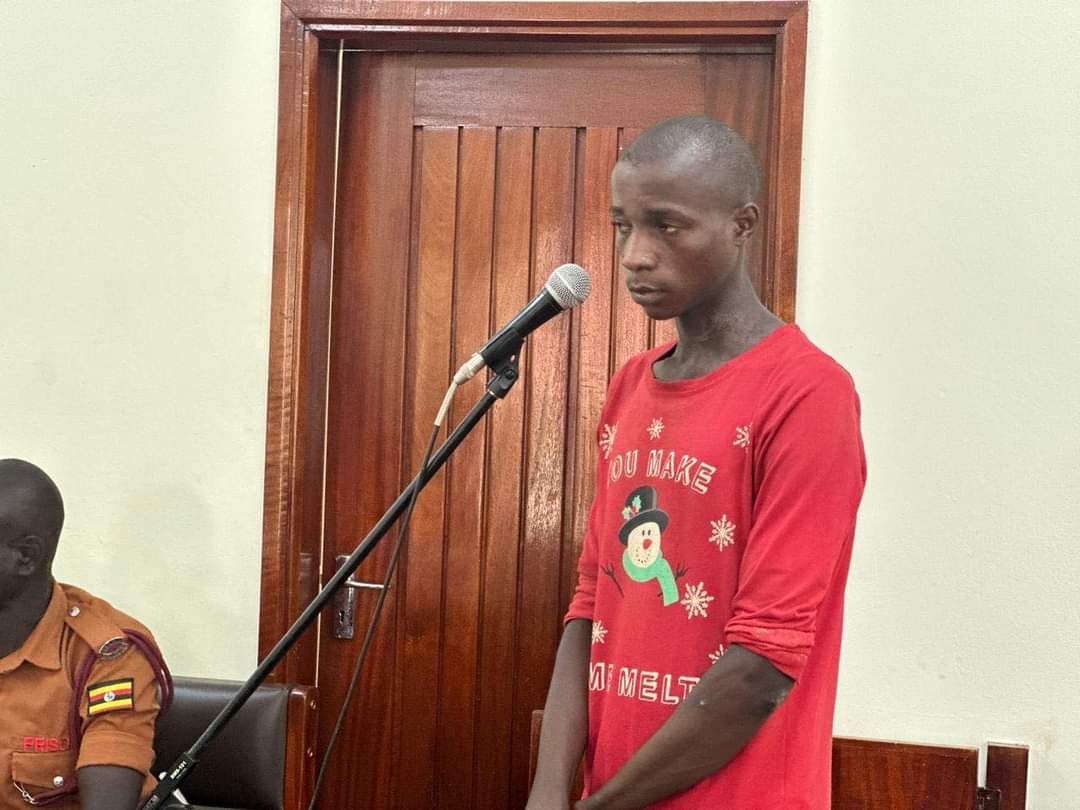Latest
Outrage as TikToker Edward Awebwa Receives Six-Year Prison Sentence for Criticizing Ugandan Leadership

Entebbe, Uganda – In a controversial decision, the Entebbe Chief Magistrate Court has sentenced 24-year-old TikToker Edward Awebwa to six years in prison. Awebwa pleaded guilty to charges of hate speech and spreading malicious information against President Yoweri Kaguta Museveni, First Lady Janet Kataha Museveni, and their son, Gen. Muhoozi Kainerugaba. The sentencing has ignited a firestorm of reactions, with opinions sharply divided on the severity of the punishment.
Awebwa’s conviction under Uganda’s Penal Code Act Cap 120 has raised significant concerns among human rights organizations and activists, who argue that the sentence is excessively harsh and infringes upon the fundamental right to freedom of expression.
Reactions from Human Rights Groups
The Resurgence Network for Human Rights (RNHR) has strongly condemned the sentencing, describing it as a blatant violation of Awebwa’s right to free speech. In an official statement, the RNHR emphasized the disproportionate nature of the punishment and called for immediate action to uphold human rights in Uganda.
RNHR Statement:
“The Resurgence Network for Human Rights is deeply troubled by the six-year prison sentence handed down to Edward Awebwa. This punishment is not only excessively harsh but also sets a dangerous precedent that threatens the fundamental right to freedom of expression in Uganda. The right to free speech is enshrined in the Ugandan Constitution and international human rights law. By imprisoning individuals for expressing their opinions, the Ugandan government is undermining democratic principles and silencing dissent. We call on the Ugandan authorities to review this sentence and to take immediate steps to protect and uphold the human rights of all citizens.”
Public Response
The sentencing has sparked a wide range of reactions among the public. Some individuals believe that Awebwa crossed a line with his comments about the first family and deserved to be punished. However, many others argue that the six-year sentence is far too severe and reflective of a broader pattern of government repression.
Freedom of Speech vs. Hate Speech
The case has also reignited the debate over the balance between protecting public figures from hate speech and preserving the right to freedom of expression. Legal experts and human rights activists emphasize the need for a measured approach that does not infringe upon free speech.
Call to Action
In light of this incident, the RNHR and other human rights organizations are calling for a reevaluation of the laws and practices that led to Awebwa’s sentencing. They urge the Ugandan government to ensure that its legal system upholds justice, fairness, and the fundamental rights of all citizens.
The RNHR has also reached out to international human rights bodies to bring attention to this case and to seek broader support for advocating for Awebwa’s release.
The sentencing of Edward Awebwa has brought to the forefront critical issues surrounding freedom of speech and government accountability in Uganda. As the debate continues, human rights organizations remain steadfast in their commitment to defending the rights of individuals to express their opinions without fear of retribution.
For more updates on this developing story, stay tuned to CMP Publications.
